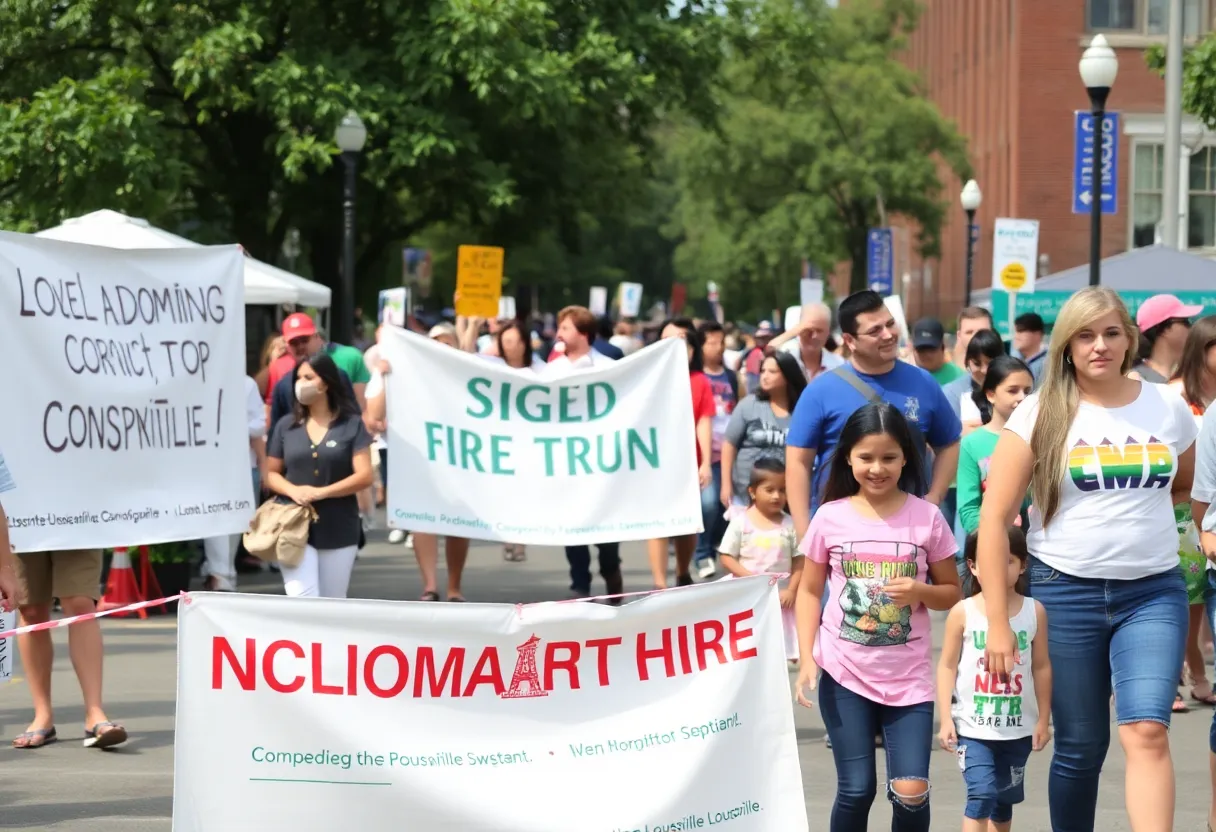Louisville, October 25, 2025
In a landmark ruling, the Kentucky Supreme Court has overturned the murder convictions of a man accused of killing a father and his 3-year-old daughter in Louisville. The court cited procedural errors during the original trial, including mishandling of evidence and jury instruction issues. The ruling has left the local community reeling, reigniting discussions about justice and accountability. Prosecutors are set to pursue a retrial as the family of the victims continues to seek closure for the tragedy that struck in 2018.
Louisville, KY – Kentucky Supreme Court Overturns Murder Convictions in 2018 Father-Daughter Killing
In a stunning development that has reverberated through Louisville’s tight-knit community, the Kentucky Supreme Court has overturned the murder convictions of a man accused of killing a local father and his 3-year-old daughter. The ruling, handed down on Thursday, points to procedural errors during the original trial as the key reason for the reversal. This decision has left many residents grappling with renewed grief over a 2018 tragedy that once seemed resolved, while prosecutors vow to pursue a retrial to deliver justice.
The court’s unanimous decision nullifies the convictions, highlighting issues such as improper handling of evidence and potential biases in jury instructions. These procedural errors were deemed significant enough to undermine the fairness of the trial, prompting the high court to order a fresh examination of the case. For the victim’s family and supporters, the ruling feels like a setback in their long quest for closure, reigniting discussions about the reliability of the justice system in handling sensitive cases.
Prosecutors in Jefferson County, where the crimes occurred, have already signaled their intent to retry the defendant. They argue that the underlying evidence against the man remains strong and that a new trial will address the identified flaws. This move underscores the ongoing commitment to hold the accused accountable, even as the process drags on years after the incident. Community advocates have expressed mixed reactions, with some calling for swift action to prevent further delays and others questioning whether enough safeguards exist to ensure an impartial second trial.
Details of the Original Case and Conviction
The case stems from a horrific double homicide in Louisville back in 2018, when the father and his young daughter were found dead in their home under circumstances that pointed to foul play. The man, whose identity has not been detailed in the latest court filings, was arrested shortly after and charged with two counts of murder. Following a highly publicized trial, he was convicted and sentenced to life in prison without the possibility of parole.
Throughout the legal proceedings, the prosecution presented forensic evidence linking the defendant to the crime scene, along with witness testimonies that painted a picture of motive and opportunity. The defense, however, challenged the chain of custody for key physical evidence and argued that the investigation overlooked alternative suspects. Despite these contentions, the jury found the man guilty, bringing what many hoped was finality to a heartbreaking story.
The appeal process began almost immediately, with the defendant’s legal team filing motions that escalated to the Kentucky Supreme Court. Over the past several years, lower courts reviewed the claims but upheld the original verdict until this pivotal ruling. Legal experts note that overturning convictions at this level is rare, occurring in only a small percentage of cases, which amplifies the impact of this decision.
Understanding Procedural Errors in the Trial
At the heart of the Supreme Court’s decision are procedural errors that could have influenced the outcome. These include mishandled evidence protocols, where items from the crime scene may not have been properly documented or stored, raising doubts about their integrity. Additionally, the court found fault with certain jury instructions that may have misled deliberations, potentially biasing the panel toward a guilty verdict without fully considering reasonable doubt.
Another concern raised was the admissibility of prior statements from the defendant, which the appeals court ruled should have been scrutinized more rigorously. These lapses, while not necessarily indicative of innocence, were sufficient to warrant a new trial under Kentucky law. The ruling emphasizes the importance of due process, ensuring that every element of a trial adheres to strict standards to protect against wrongful convictions.
In Louisville, where violent crime has been a persistent issue, this case has become a focal point for broader conversations about judicial reform. Local groups focused on victims’ rights have mobilized, urging lawmakers to review similar past trials for comparable flaws. Meanwhile, the defendant’s supporters, though fewer in number, view the decision as a victory for fairness in the system.
Community Impact and Next Steps
The overturning of the convictions has shocked the local community, still seeking justice for the 2018 tragedy. Vigils and online forums are buzzing with reactions, as families affected by similar crimes share stories of prolonged uncertainty. The young age of the victim has particularly intensified the emotional response, with child advocacy organizations calling for enhanced protections in homicide investigations.
As preparations for a retrial begin, the case is expected to return to Jefferson Circuit Court, potentially facing a new pool of jurors aware of the high-profile nature of the matter. Timeline estimates suggest the process could take another year or more, factoring in evidence re-examination and pre-trial hearings. Throughout, both sides will likely intensify efforts to sway public opinion, though court rules will limit formal communications.
This development serves as a reminder of the complexities within the legal system, where procedural integrity often determines outcomes as much as the facts of the crime. For Louisville residents, it reignites hope for resolution while underscoring the challenges in achieving it. As the retrial approaches, all eyes will be on how the courts balance speed, fairness, and accountability in this poignant saga.
(Word count: 728)
FAQ
What happened in the Kentucky Supreme Court ruling?
The Kentucky Supreme Court has overturned the murder convictions of a man accused of killing a Louisville father and his 3-year-old daughter. The ruling, issued Thursday, cites procedural errors in the trial.
Why were the convictions overturned?
The ruling points to procedural errors during the original trial, including issues with evidence handling and jury instructions, which undermined the fairness of the proceedings.
What are the next steps after the ruling?
Prosecutors plan to retry the case, as the decision shocks the local community still seeking justice for the 2018 tragedy.
When did the original crime occur?
The case stems from a 2018 tragedy involving the killing of a Louisville father and his 3-year-old daughter.
How has the community reacted?
The decision has shocked the local community still seeking justice for the 2018 tragedy.
Key Features Chart
Below is a summary of the key aspects of the case in a simple table format for clarity.
| Aspect | Details |
|---|---|
| Court Ruling | Kentucky Supreme Court overturned murder convictions due to procedural errors. |
| Date of Ruling | Issued on Thursday. |
| Original Crime | Killing of a Louisville father and his 3-year-old daughter in 2018. |
| Reasons for Overturn | Procedural errors in the trial, including evidence handling and jury instructions. |
| Next Steps | Prosecutors plan to retry the case. |
| Community Impact | Shocks the local community still seeking justice for the 2018 tragedy. |





